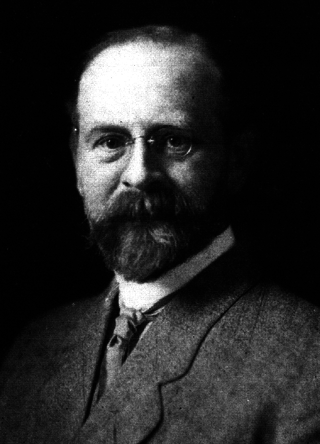Related Research Articles

Grand Bay is an unincorporated community and census-designated place (CDP) in Mobile County, Alabama, United States. It is part of the Mobile metropolitan area. The population was 3,460 at the 2020 census.

Camiguin, officially the Province of Camiguin, is an island province in the Philippines located in the Bohol Sea, about 10 kilometres (6.2 mi) off the northern coast of Mindanao. It is geographically part of Region X, the Northern Mindanao Region of the country and formerly a part of Misamis Oriental province.

The Tausūg or Suluk, are an ethnic group of the Philippines and Malaysia. A small population can also be found in the northern part of North Kalimantan, Indonesia. The Tausūg are part of the wider political identity of Muslims of Mindanao, Sulu and Palawan. Most of the Tausūg have converted into the religion of Islam whose members are now more known as the Moro group, who constitute the third largest ethnic group of Mindanao, Sulu and Palawan. The Tausugs originally had an independent state known as the Sultanate of Sulu, which once exercised sovereignty over the present day provinces of Basilan, Palawan, Sulu, Tawi-Tawi, Zamboanga City, North Kalimantan and the eastern part of the Malaysian state of Sabah.

The Pontifical University of Saint Thomas Aquinas (PUST), also known as the Angelicum in honor of its patron the Doctor Angelicus Thomas Aquinas, is a pontifical university located in the historic center of Rome, Italy. The Angelicum is administered by the Dominican Order and is the order's central locus of Thomist theology and philosophy.

The Grave Creek Stone is a small sandstone disk inscribed on one side with some twenty-five characters, purportedly discovered in 1838 at Grave Creek Mound in Moundsville, West Virginia. If genuine, it could provide evidence of Pre-Columbian writing, but the discovery that the characters can be found in a 1752 book suggests that it is probably a fraud. While replicas have been made, the original stone has been lost. The only known image of the actual stone is a photograph of items in the E.H. Davis collection before the majority of the collection was sold to the Blackmore Museum.

A dog biscuit is a hard, biscuit-based, dietary supplement for dogs or other canines, similar to human snack food.

Apomys, commonly known as earthworm mice, is a genus of rodent endemic to the Philippines. Mice belonging to this genus are generally called Philippine forest mice and can be found on most islands of the Philippines except in Palawan, the Sulu Archipelago, and the Batanes and Babuyan group of islands.
Leon Pasternak was a Polish poet and satirist. His Jewish family came to Poland in the 1880s from the town of Tula, Russia, which was outside the Jewish Pale of Settlement, where Jews usually were not allowed to reside.

Karl Eugen Guthe was a German-born American academic and physicist, notable for being the first Dean of the Graduate Department at the University of Michigan.

Henry Gordon Wells was a lawyer and a Republican politician in Massachusetts and New Hampshire.
Spring Pond, United States, abuts the three cities of Lynn, Peabody and Salem. In the center of these townships "is a beautiful pond". It is a secluded lake known by residents of the three cities and visitors who come to enjoy the camps, trails and natural environment of the woods. "It is in fact one of the most picturesque and romantic lakelets in Massachusetts". Stretching from Spring Pond to Marlborough Road in Salem, the pond and woods form a microcosm of beauty. On the edge of Spring Pond was once the Fay Farm, an English manor estate in New England. The mansion of Fay Farm was a well-known hotel in 1810, when the springs of these areas were believed to possess medicinal qualities. People visited the springs near Spring Pond to restore health, and worship the goddess Hygeia and drink from the rusty iron-rich water trickling from the foot of a bank. Later, some traveled there solely for fun and frolic. The hotel was then converted into a private residence. The waters of Spring Pond are conveyed by springs from an aquifer lying below Spring Pond through Peabody, Lynn and Salem. Spring Pond is listed as one of the "Massachusetts Great Ponds".

Colonel Thomas Westbrook (1675–1743/44) was a senior New England militia officer in Maine during Father Rale's War. In addition to this senior militia role he was a scout, a colonial councillor, an innkeeper, a mill owner, a land speculator and a King's Mast Agent. He is the namesake of Westbrook, Maine.
The 10th (Newton's) Arkansas Cavalry (1864–1865) was a Confederate Army Cavalry regiment during the American Civil War. The unit was originally organized from volunteer companies raised from the Arkansas State Militia in the Southern Arkansas Counties in the winter of 1863–1864 after the fall of Little Rock. It was originally organized as Pettus Battalion, Arkansas State Troops but was later enrolled in Confederal Service and Robert C. Newton was elected Colonel.

Lucius Lee Hubbard was an American geologist. He served as State Geologist of Michigan from 1893 to 1899 and on the Board of Regents of the University of Michigan.
George Green Mathews Jr. was an American diplomat and politician. He served as U.S. Consul at Pará, Brazil from 1893 to 1897, and on his return to the United States was a Florida State Representative and the 2nd mayor of Fort Lauderdale from 1913 to 1914.

Mount Sungay, also known as Mount Gonzales, is a mountain in the province of Cavite in the Philippines. Located in eastern Tagaytay, the inactive stratovolcano is the highest point in the province of Cavite, at 709 metres. The slopes of the mountain are the source of the San Cristobal River that flows from the mountain to Silang, Cavite down to its mouth at Laguna de Bay in Calamba, Laguna.
"Papa t'es plus dans l'coup" is a song by French singer Sheila. Released on the same EP with "L'école est finie", the song also became a huge hit. Sheila performed it many times on television. Also, a Scopitone was made for it.

Colden L'Hommedieu Ruggles was a career officer in the United States Army. A prominent member of the Ordnance Corps, he attained the rank of brigadier general, and was notable for planning and overseeing construction of Aberdeen Proving Ground, Maryland. In addition, he was noteworthy for his service as acting Chief of Ordnance in 1930.
The Sebuku River is a river of Borneo near Nunukan, in the province of North Kalimantan, Indonesia.
References
- ↑ Miller, Merton L. "The burial mounds of Camiguin Islands". The Philippine journal of Science, 6 (February 1911), 1:1-4
- ↑ The New York Times Obituaries, January 29, 1953, p. 27
- ↑ Third General Catalogue of Colby College, Waterville, Maine. 1820-1908, accessed at https://books.google.com/books?id=oXg2AQAAMAAJ&dq=colby+college+miller+library+merton+miller&pg=PA111
- ↑ The Far Eastern Review: engineering commerce, finance, Volume 2, accessed at: https://books.google.com/books?id=nERBAQAAMAAJ&dq=Mindanao+Estates+merton+miller&pg=PA406
- ↑ Miller v. McColgan, 17 Cal. 2d 432, 433, 110 P.2d 419, 420 (1941)